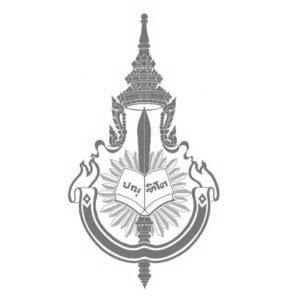Foreword
The President of the Royal Society of Thailand
The Royal Society of Thailand is the national learned institution established by King RAMA VII in 1926. Members of the society are royally appointed as scholars of the King. The Royal Society of Thailand is recognized as a leader in the field of academic excellence consisting of three institutions: the Academy of Science, the Academy of Moral and Political Sciences, and the Academy of Arts. The Royal Society is responsible for the academic work of the government and is a Thai language reference center. The society provides intellectual resources for research, reference and educational services. The Royal Society of Thailand routinely publishes academic-specific dictionary textbooks and encyclopedias of all disciplines and issues regular journals both in Thai and English.
The International Journal of the Royal Society of Thailand (IJRST) is one of the official journals of the Royal Society of Thailand. IJRST is an international forum for the communication and sharing of knowledge from all major disciplines. The theme for this 2018 volume is “Tropical Science and Education”. The Royal Society of Thailand supports academic work related to the Tropics, and outside the region. As a clinician in the field of medicine, I am aware that global warming, population growth and the growth in international travel mean that tropical diseases are increasingly linked to global health. It is gratifying to note that the Faculty of Tropical Medicine, Mahidol University, is well recognized as a leader in tropical medicine.
I would like to congratulate the Journal on publishing the 2018 volume and convey my sincere appreciation to all contributing authors from the Royal Society of Thailand and other international organizations, and to the Journal editors for their diligence and expertise. I am confident that the knowledge shared through this publication will lead to further positive developments in health and education in the Tropics and beyond.
Professor Surapol Issaragrisil, FRS(T)
President of the Royal Society of Thailand
This 2018 volume of the International Journal of the Royal Society of Thailand is published under the theme of ‘Tropical Science and Education’. The Tropical zone is the center of the equator between Tropics of Cancer and Capricorn span 23° of latitude north and south of the Equator, a belt around the planet characterized by hot and wet climates. This Tropical Zone contains over a third of the world’s surface area and population, and demographic trends suggest that by the middle of this century half of the world’s population will live in the Tropics. Such a vast area is richly diverse in geography, peoples, culture, development, and of course also in health and education. In my own professional field, the term tropical medicine is the study of those diseases particular to, or prevalent in tropical regions but uncommon outside of them. Some now believe the name to be outdated, perhaps because of colonial connotations, however it does describe something coherent, even if it is hard to define this precisely. I have borrowed this flexible use of the word tropical for the current volume on education and science in the tropics. These articles cover a wide range of subjects, but all relate to issues that are prevalent or in some aspect specific to the tropics.
Tropical diseases include both the communicable and non-communicable illness. In the modern world it is becoming harder to classify diseases as tropical or not because of the increasing scale and frequency of people moving between regions. Moreover, it is predicted that the effects of global warming may extend the range of what we still think of as tropical diseases. Within these developments there is great heterogeneity and we face both challenges and opportunities. The emergence into human populations of new communicable diseases appears to be becoming more common; while many endemic tropical diseases are now the targets for elimination programmes. Malaria, the most famous tropical disease and the most important parasitic disease of humans, is targeted for elimination and much progress towards this has already been made in recent decades. In the 21st century, a great threat is that some of the many epidemic viral infections may become pandemics and become global problems. The most important of these are likely to be influenza and coronavirus infections due to their high transmissibility. The changing ecology of global warming and urbanization, as well as other rapidly developing social and environmental factors, has already caused a shift in thinking about tropical and infectious diseases.
This volume is intended to provide a platform for different voices on tropical science and education. All of the nine articles have been submitted by experts working in Thailand and the neighboring countries in Southeast Asia. The authors represent internationally renowned institutions and include members of the Royal Society of Thailand, Mahidol University, Kasetsart University, the Mahidol-Oxford University collaboration, and Maynard Leigh Associates. I would like to extend my sincere gratitude for the support given by the board of reviewers, and I give special thanks to Professor Surapol Issaragrisil, the President of the Royal Society of Thailand. I hope that the knowledge and ideas contained in this volume will inspire further research and interest. The continuing development of tropical science and education will support improvements in health and good governance in tropical regions and beyond.
(Professor Emeritus Sasithon Pukrittayakamee)
Editor, Fellow of the Royal Society of Thailand
The International Journal of the Royal Society of Thailand Volume X – 2018
Advisor
Professor Surapol Issaragrisil, FRS(T)
Editor
Professor Sasithon Pukrittayakamee, FRS(T)
Editor Board
Professor Narattaphol Charoenphandhu, AFRS(T)
Professor Pornsan Watanangura, FRS(T)
Professor Pasuk Phongpaichit, FRS(T)
Professor Srisurang Poolthupya, FRS(T)
Professor Sir Nicholas John White, FRS
Professor Nicholas PJ Day, FRCP
Dr. Thomas J Peto, PhD
Mrs. Duangta Tancho, Secretary-General
Ms Saengchant Sansupa, Literateur
Miss Piyaratt Inorn, Literateur
Miss Parichat Kitinun, Literateur
Miss Yolada Yaiprayoon, Literateur
Miss Kanokporn Chuenjaidee, Literateur
Language Editors
Assit Prof. Namthip Anantsupamongkol
Dr. Thomas J Peto
Cover Design
Mrs Siwaporn Panphoowong
